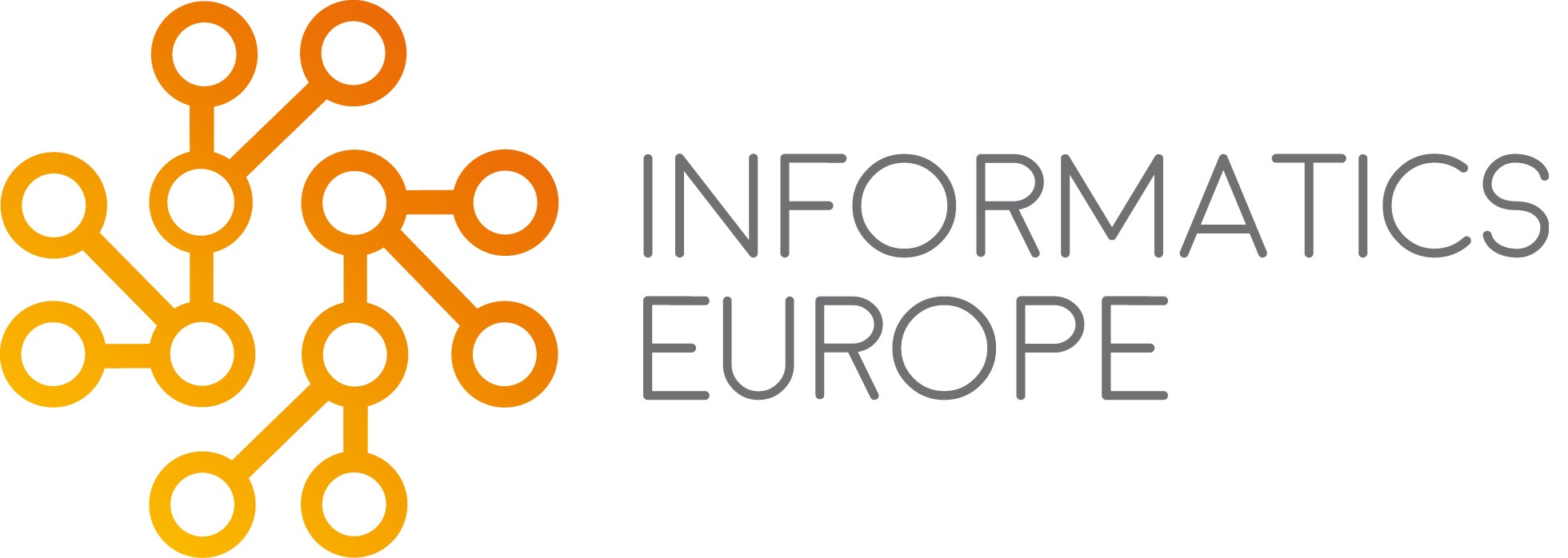19th European Computer Science Summit
ECSS 2023 was held from 23 to 25 October 2023 in Edinburgh, UK, with the main theme "Informatics: Shaping the Future". The conference was hosted and co-organised by the School of Informatics of the University of Edinburgh.
ECSS is the flagship summit for the leadership of the Informatics research community in Europe.
The only summit devoted to crucial and timely strategic issues and trends regarding all aspects of informatics in Europe. It covers subjects such as education, research, funding, entrepreneurship, management, and career development. The high calibre of the speakers, since the very first Summit in 2005, has established ECSS as one of the most prominent meetings of the European informatics community. A must-go event for research and education leaders and change-makers at all levels, in informatics and related disciplines.
ECSS 2023: activities organised by our Summit Committee:

Why attend
Speakers
ECSS speakers are always among the world`s most distinguished academics, industry leaders, and decision-makers in the field. The event never fails to inspire and stimulate the audience.
Workshops
Learn directly from your peers. Share best practices, common challenges, and proven strategies for improving the quality of research and education in Informatics at the ECSS workshops.
Network
Meet some of the leading decision makers in Informatics research and education and discuss the critical issues of the discipline. Build valuable relationships with department heads, deans, policy makers, industry, and other leaders in the field.
ECSS 2023 in a Nutshell
Diversity and Inclusion in a Multicultural World
Professional Development for Early Career Researchers
Early Career Researchers Workshop
Social Activities
Networking and exchange time during coffee breaks, welcome cocktail, and official dinner
Informatics: Shaping the Future
Plugging the Informatics Skills Gap & The Journey from Higher Education to Entrepreneurship
AI and the Future of Informatics Education
Workshop co-organized with National Informatics Associations
Green ICT and ICT for Green Workshop
Analysis of Data in European Informatics Higher Education Landscape
Data Analysis and Reporting WG Workshop
Informatics Europe Sessions
The above mentioned workshops and sessions are open to all ECSS participants.
Thank you for your support at ECSS 2023. We look forward to meeting you at our next Summit in Malta on 28-30 Oct, 2024!
ECSS, from 2005 to date
The European Computer Science Summit has been organised annually by Informatics Europe since 2005. In fact, the origins of Informatics Europe date back to the first ECSS held at ETH Zurich in 2005, when for the first time, heads of Informatics departments throughout Europe met to discuss critical issues and common concerns related to their discipline. Informatics Europe continues to organize the summit since then.
Today, ECSS still gathers deans, department chairs, and heads of research groups of leading European Computer Science and Informatics faculties, departments as well as public and private research institutes. Additional workshops and sessions in recent years have broadened the scope of the discussions to include all leaders and decision-makers in Informatics in Europe, both from academia and industrial research labs.
The Summit is devoted to all aspects of Informatics: education, research, funding, entrepreneurship, management, career development, and policies.
The high calibre of the speakers, since the very first Summit in 2005, has established the ECSS as one of the most prominent meetings of the European Informatics community.
Purpose of ECSS
- Debate the future of informatics, its role and influence in both academy and society.
- Expand the international network of deans, heads of departments, and group-leading researchers in informatics.
- Provide a forum for discussion and exchange of solutions and best practices on common issues.
- Examine ways in which deans, department heads, and group-leading researchers in informatics can work together to improve teaching and research, implement the Bologna process, can influence the policies of their universities, governments, and the EU, and take joint initiatives on common issues.
- Provide opportunities for liaisons with other groups pursuing common interests.




